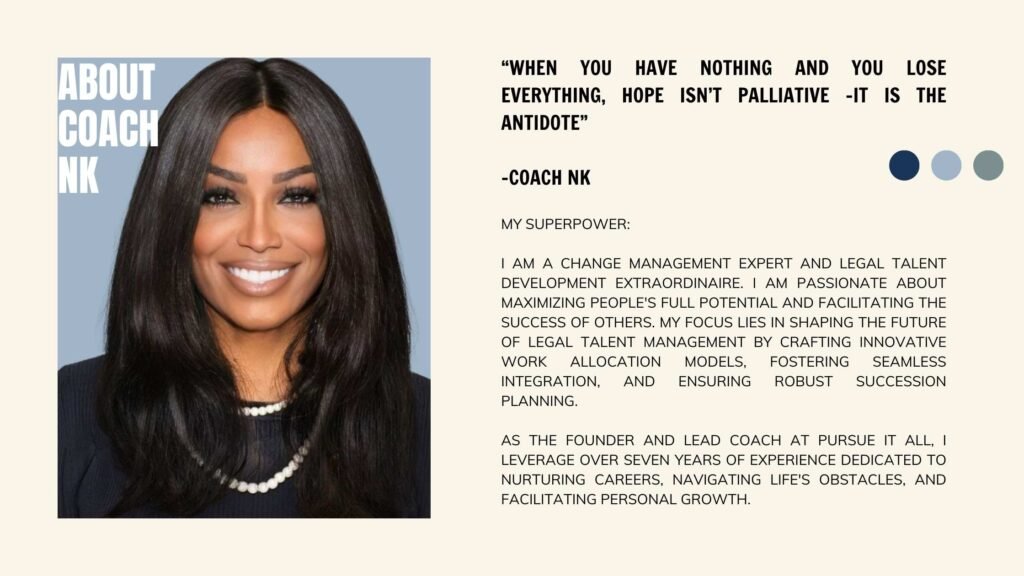Despite years of accomplishments, why do so many high-achieving executives still experience crippling self-doubt? Even at the top, feelings of inadequacy can persist. Let me show you how to overcome those feelings.
Even the most successful executives sometimes wonder, “Am I really good enough?” You’ve built a stellar career, made critical decisions, and achieved impressive milestones, yet feelings of self-doubt persist. And you’re not alone. Many executives experience this internal battle, despite having all of the external indicators of success.
This phenomenon is called the confidence gap—the space between your real capabilities and how capable you feel. The higher you climb, the more responsibility you take on, and for many, the more self-doubt creeps in. Executives across industries face this gap, and it can lead to hesitation, fear of failure, and even missed opportunities.
But why does this gap exist? More importantly, how can you close it and regain the confidence you need to lead effectively? Let’s explore the causes of the confidence gap and provide actionable strategies to help you close it, once and for all.
What is the Confidence Gap?
The confidence gap is the disparity between your actual abilities and your belief in those abilities. It’s when you’re more than capable of excelling in your role but still feel like you’re falling short or aren’t equipped to handle challenges. This gap often stems from internalized self-doubt or limiting beliefs, even in those with a proven track record.
Examples of the Confidence Gap:
- Second-Guessing Decisions: You’ve made countless high-stakes decisions, yet you constantly question your judgment, fearing you’ve missed something or made the wrong call.
- Imposter Syndrome: Despite being at the top of your field, you feel like a fraud, as though your success is due to luck or external factors, not your skills.
- Fear of Risk: You hesitate to take bold actions, afraid of failure or the consequences of a wrong move, even when your instincts tell you to proceed.
Impact of the Confidence Gap:
- Limits Career Growth: Self-doubt leads to hesitancy, causing you to pass up high-impact opportunities or avoid pushing boundaries.
- Increases Stress and Overwork: In an effort to “prove” yourself, you overwork to compensate for a perceived lack of competence, often leading to burnout.
- Reduces Leadership Effectiveness: Confidence is key in leadership, and when you don’t fully trust yourself, it can erode your team’s trust and create uncertainty in decision-making.
So Why Do Smart, Successful Executives Still Struggle with Self-Doubt?
High Expectations:
Executives often set exceptionally high standards for themselves, which can foster feelings of inadequacy. When you expect perfection or immediate mastery, any minor setback or perceived failure becomes magnified, making you question your competence. The pressure to maintain or exceed your past success can fuel self-doubt, especially in rapidly changing or high-pressure environments.
Imposter Syndrome:
Imposter syndrome is a pervasive issue for many high-achievers. Despite external success, you may attribute your accomplishments to luck, timing, or being in the right place at the right time. This mindset keeps you from fully owning your expertise and often results in constant fear of being “exposed” as a fraud.
Fear of Failure:
As you rise up through the ranks, the stakes get higher. Every decision you make has far-reaching consequences, not only for your career but for your entire team or company. This increased responsibility can amplify the fear of failure. You may begin to question your instincts or avoid taking necessary risks, worried about the potential fallout.
The Cost of the Confidence Gap
Missed Opportunities:
Executives who lack confidence may shy away from pursuing ambitious goals or high-risk, high-reward opportunities. This limits both personal and professional growth.
Overworking:
In an effort to compensate for self-doubt, executives may overwork, leading to burnout. They try to prove their worth through sheer effort, rather than trusting in their existing abilities.
Limited Leadership Impact:
Confidence is key to leadership. When executives second-guess themselves, it can trickle down to their teams, creating a culture of uncertainty and indecision.
How Confidence Coaching Can Close the Gap
Rebuilding Self-Belief:
Confidence coaching focuses on helping you internalize your success. Rather than attributing your achievements to external factors, coaching allows you to reconnect with your strengths, abilities, and past wins. Through reflective exercises, you’ll learn to shift your thinking from “I was just lucky” to “I’m skilled and capable.” This shift in self-perception is critical for lasting confidence.
Overcoming Imposter Syndrome:
A coach can help you dismantle imposter syndrome by identifying the thought patterns that feed it. You’ll learn techniques to challenge and reframe these thoughts, replacing them with affirming, empowering beliefs. As you move through this process, you’ll begin to see your achievements for what they truly are—evidence of your hard work and competence.
Developing Risk-Taking Skills:
One of the keys to leadership is the ability to take calculated risks. Confidence coaching helps you trust your instincts and make decisions with conviction. You’ll practice embracing uncertainty, viewing failure as a learning experience rather than something to fear. As you become more comfortable with risk, your confidence grows, allowing you to lead with greater authority.
Success Stories: Executives Who Closed Their Confidence Gap
Story 1:
Lisa, a seasoned marketing executive, found herself constantly second-guessing her decisions after stepping into a C-suite role. Despite years of experience, she felt like she wasn’t “cut out” for the job. Through confidence coaching, Lisa was able to reframe her negative thoughts and focus on her strengths. In six months, she transformed her leadership style, leading her team with renewed confidence and securing a major promotion.
Story 2:
Mike, a CEO of a growing tech firm, struggled with imposter syndrome. Even after leading his company through a successful funding round, he still felt like he was in over his head. With the help of confidence coaching, Mike developed the tools to quiet his inner critic and trust his leadership instincts. He embraced risk, leading his company through a successful acquisition, solidifying his position as a dynamic and trusted leader.
Close Your Confidence Gap Today
Don’t let self-doubt stop you from achieving your full potential. You’ve already accomplished so much—now it’s time to embrace your success and lead with confidence.
Take our What’s Holding You Back? quiz to identify the root of your confidence gap and get personalized insights on how to close it.
Ready to take the next step? Book a complimentary consultation with Pursue It All to explore how confidence coaching can help you overcome self-doubt, reclaim your power, and step fully into your leadership potential.
Take the quiz and book your consultation now!




Be the first to comment